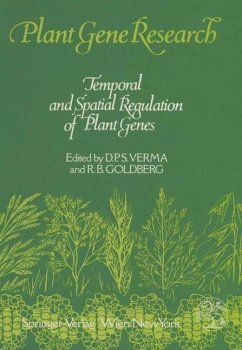First attempts to isolate plant genes were for those genes that are abun dantly expressed in a particular plant organ at a specific stage of devel opment. However, many important gene products are produced in a very minute quantity and in specialized cell types. Such genes can now be isolated using a variety of approaches, some of which are described in this volume. The rapid progress during the last decade in regeneration of a number of crop plants and the availability of molecular tools to introduce foreign genes in plants is allowing the engineering of specific traits of agri cultural importance. These genes must, however, be regulated in a spatial and temporal manner in order to have desired effects on plant devel opment and productivity. The habitat of plants necessitate adaptive responses with respect to the environmental changes. Starting from germination of the seed, the plant begins to sense environmental cues such as moisture, light, temperature and the presence of pathogens, and begins to respond to them. Little is known about various signal transduction pathways that lead to biochemical and morphogenetic responses, in particular, transition from vegetative to reproductive phase. With the availability of tools to generate specific mutations via transposon tagging, identification and isolation of genes affecting these processes may be facilitated. Transfer of these genes into heterologous environments will allow understanding of the complex processes that control plant development.
Dieser Download kann aus rechtlichen Gründen nur mit Rechnungsadresse in A, B, BG, CY, CZ, D, DK, EW, E, FIN, F, GR, HR, H, IRL, I, LT, L, LR, M, NL, PL, P, R, S, SLO, SK ausgeliefert werden.









